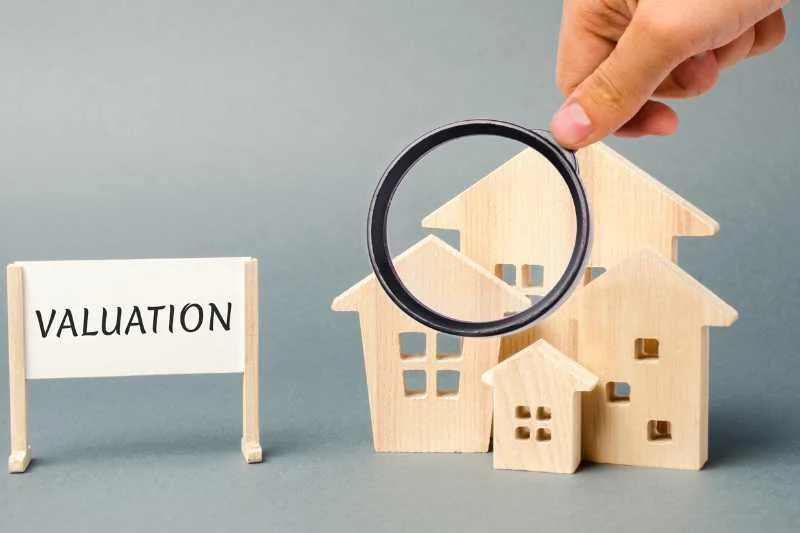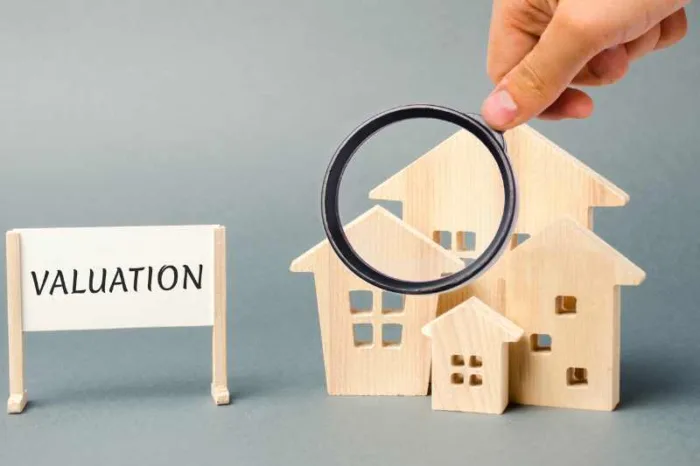Key takeaways:
- Real estate valuation is the process of determining the official value of a property.
- It’s best to hire professionals to evaluate your property for you.
- Valuation methods include the cost approach, sales comparison approach, price per square foot method, and income capitalization approach.

Disclaimer: This content is for informational purposes only, you should not construe any such information as legal, tax, investment, financial, or other advice. Nothing contained on our site constitutes a solicitation, recommendation, endorsement, or offer by ButterflyMX or any third-party service provider. ButterflyMX is not a financial adviser. You should always seek independent legal, financial, taxation, or other advice from a licensed professional.
Real estate valuation is one of the most important parts of real estate financing, investing, and development. Conversely, it can be one of the most difficult processes to complete. It requires research, math, and a breadth of technical knowledge you may have to outsource to an industry expert.
In this guide, we’ll define what real estate valuation is. Next, we’ll cover the merits of hiring someone to do evaluate real estate for you. Finally, we’ll go over the top valuation methods.
This post covers:
What is real estate valuation?
Real estate valuation is the method that determines the exact economical value of a property. Typically, property valuation comes in the form of a real estate valuation report. This is an official document given to anyone who requests it.
Is real estate appraisal an estimate of value?
Yes, a real estate appraisal is an estimate of value according to various metrics. The term real estate appraisal is nearly identical to real estate valuation.
What is the difference between real estate valuation and real estate appraisal?
A real estate appraisal is an educated guess.
Conversely, a real estate valuation report is a certified analytical approach that is often done by certified professionals. It’s the type of hard data the government needs when determining taxes.
However, evaluating real estate can still be done on your own.
Who uses real estate valuation?
A real estate appraisal gives an estimate of the value of a specific property on a specific date. This information is pertinent to determining this property’s market value.
The market value of a property is vital information for:
- Buyers
- Sellers
- House flippers
- Investors
- Tax assessors
- Insurance companies

What is examined in the real estate valuation process?
When conducting a property appraisal, the valuator acts like a prospective buyer. They assess not only the property’s aesthetic value, but the land the property sits on, its development potential, and more.
Some of the key areas examined in the valuation process include:
- The merits of a location.
- The valuation of similar property types.
- The current real estate cycle and risks associated with it.
- The integrity of the property foundation.
- Construction materials used.
- Electrical.
- Insulation.
- Window and door integrity.
- Heating systems.
- Water, smoke, wind, and hail damage.
- Insurance risks, including flood risks and fire hazards.
Learn how to invest in multifamily real estate:
Outsourcing real estate valuation
Evaluating real estate is a task best left to the professionals. To this end, there are real estate valuation companies that can handle real estate valuation jobs that are both minor and major. The cost for an appraisal usually hovers around $400.
Instead of outsourcing your evaluation, you might be tempted to take a real estate valuation course and do it yourself. If so, you can take an educational course from the comfort of your own home thanks to Udemy courses such as this one.
However, when you consider how much time it might take you to come up with a real estate valuation report on your own, you may see that outsourcing for help might be worth it. After all, professionals also have more experience than you.
What’s more, they also have done a ton of research on the current value of properties. As a result, their knowledge is more extensive than a few Google searches. Additionally, the costs or penalties of undervaluing or overvaluing your property will likely exceed $400 anyway.
4 real estate valuation methods
There are several different ways to calculate what a property is worth during the valuation process. Because of this, there’s no one real estate valuation calculator that you can refer to. Rather, different methods depend on the unique property you’re trying to appraise.
The four methods are:
1. Sales comparison approach
The sales comparison method takes the word “comparison” literally by comparing your property with similar property types. It’s most often used for single-family homes — but isn’t exclusive to them. Rather, it’s used most commonly for single-family homes because they have plenty of available data for comparing values.
Comparable factors include:
- Age and location of properties
- Size of property
- Length of ownership
- Property renovations
Making comparisons isn’t a foolproof method. However, it does create a general estimate that can be further worked with for a different approach.
2. Cost approach
The cost approach is another literal approach that analyzes all of the hard data of a property before calculating a real estate valuation number.
This includes finding the value of:
- Rental property depreciation
- Specific construction materials used
- The land the property sits on
- Square footage of the property
- Labor costs for property
3. Price per square foot method
The price per square foot method breaks a property down into square footage. Calculating it is as simple as dividing the total square footage by the price of the property.
While the price per square footage is easy to determine, it’s better for a real estate appraisal as opposed to an accurate valuation. This is because of how much the value of square footage varies depending on the region.
For example, 1,500 square feet is a much different metric in New York City than in Charleston, South Carolina.

4. Income capitalization approach
The income capitalization method refers to the potential income that a property can generate. Specifically, it compares the ROI (return on investment) with the NOI (net operating income).
The total anticipated earning potential of a property plays a big role in determining the final number for a real estate valuation.
In order to determine projected earnings for a property, you utilize a GRM (gross rent multiplier).
This formula is the purchasing price of the property divided by the annual income.
For example: A $300,000 property divided by a return of $60,000 is a GRM of 5%.
Furthermore, this approach analyzes the potential for vacancies in a multifamily property and operating expenses. Properties that produce rental income are also compared to similar properties in the same geographic area through the sales comparison approach.







